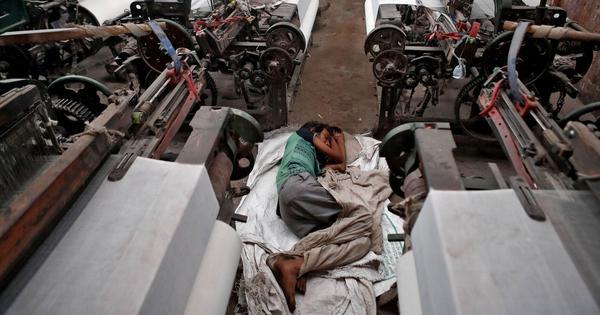This is an excerpt from the sixth edition of the India Exclusion Report, a collaborative effort involving institutions and individuals working with a shared notion of social and economic equity, justice and rights. The report seeks to inform public opinion around exclusion and the role of the state and to influence policy-making towards creating a more inclusive, equitable and just society. The annual publication is anchored by the Centre for Equity Studies and edited by its director, Harsh Mander.
Half-torn posters advising “Ghabrasho Nahi, Savdhani Jaroor Raakhiye” (Don’t Panic, Stay Safe) cover the cracks on the compound walls. The paint at the entrance has paled over time. The khat-khat sound of fibre spinning into yarn in the background that pierced the morning calm at Kismat Colony for decades has gone silent.
The name of this neighbourhood in north Surat sums up the aspirations of its many inhabitants: groups of young migrant men from Odisha’s ecologically…
